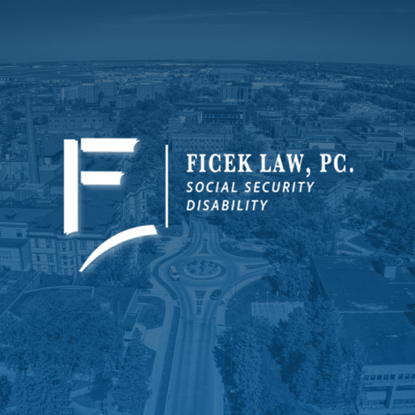

Meet Our Team
Ficek Law, PC's SSDI Specialists in Fargo, ND
How to Apply for Disability Benefits with Ficek Law, PC in Fargo, ND
Your Comprehensive Guide to Navigating Social Security Disability Applications
Applying for Social Security Disability Benefits can be a daunting process. At Ficek Law, PC, located in the heart of Fargo, ND, we strive to simplify this journey for our clients. Understanding the intricacies of the application and appeal process is crucial, and this guide aims to walk you through every step with confidence.
Our FAQ
Have questions? We are here to help. Still have questions or can't find the answer you need? Give us a call at 701-436-2461 today!
-
How Do I Communicate My Functional Limitations?In your Initial Application, you told SSA why you cannot work. This might be your physical health (back, hands, arms, legs) or your mental health (difficulty with people) or both. Each time you go to the doctor, you should tell your doctor every symptom you are experiencing that is preventing you from working. Always remember, if a medical issue is preventing you from working, but it is not consistently reflected in your medical records, to SSA, it is as if it doesn’t exist.
-
What Are My Chances for Approval at the Reconsideration Appeal?Low. About 90% of Reconsideration appeals are denied. Reconsideration Appeals are typically a “rubber stamp” of the Initial Application. Denials are a very normal part of SSA’s process and not something to take personally. SSA is a large, inefficient government system that forces the majority of claimants to file two appeals prior to any chance at approval.
-
How Do I Become Eligible for SSI?Before filing for SSI, it is important to know what the requirements are to receive benefits. Eligibility is based on you:
- Being disabled; or
- Being blind; or
- Being over the age of 65; and
- Having limited income and resources; and
- Being a U.S. citizen, national, or a certain type of alien.
For a child to qualify for SSI, they must have a physical or mental impairment expected to endure more than 12 months or result in death.

The Advocate You Want on Your Side
-
Free Case Consultations
Schedule a free case consultation today to discover how we can help you, without any cost or obligation.
-
No Hourly Rate
We don't charge hourly rates - We offer fair and transparent pricing for our legal services.
-
No Retainer Fee
We don’t charge retainer fees, ensuring you can get started with your case immediately without any upfront costs.
Step-by-Step Guide to Applying for Social Security Disability Benefits
Successfully navigating the Social Security Disability application is key to obtaining benefits. Begin by gathering necessary documentation and filling out the application through the Social Security Administration's website or in person at your local office. Be sure to complete all sections thoroughly to prevent delays. At Ficek Law, PC, we're here to assist every stage to ensure accuracy and efficiency.
Once the application is submitted, the SSA will assess your physical and/or mental condition against strict eligibility criteria. Keeping a copy of your application and all related documents is highly recommended throughout this process.


Real People. Real Results.
Hear from Former Clients Who Got the Benefits They Deserved
-
"He did a tremendous job."
Thank you to Anton (Tony) Ficek Law for helping me with my Social Security case. He did a tremendous job in answering my questions and working with me through a difficult process.
- Tim S. -
"He will walk you through every step"
My experience working with Tony from Ficek Law was a great experience. I was very comfortable talking with him and his staff. ...
- Ashley R. -
"I Love Their Service"
He helped us a lot. Do you know what they’re doing? They’ll do everything for you.
- Moamin M. -
"The Communication Was Impeccable"
After over four years of struggle, I found this excellent lawyer who fought for me. I personally feel many people do not understand an illness, not clearly visible, but he did.
- Shawna E. -
"Call This Firm. They Are Excellent"
The staff are very welcoming, and Mr. Ficek made us feel comfortable and at ease.
- Deborah D. -
"Do Yourself a Favor and Hire Mr. Ficek"
I fought for myself for 3 years, with well documented severe Rheumatoid arthritis, being turned down each time.
- Theresa Y. -
"I Felt Very Confident Going In!"
Very attentive to details that helped win the case.
- Ahlam S. -
"We Had a Positive Decision Even at the Appeals Level"
The whole procedure from application process and time line for applying for Social Security benefits was as Mr Ficek had explained to me and my wife.
- Ronnie N.






